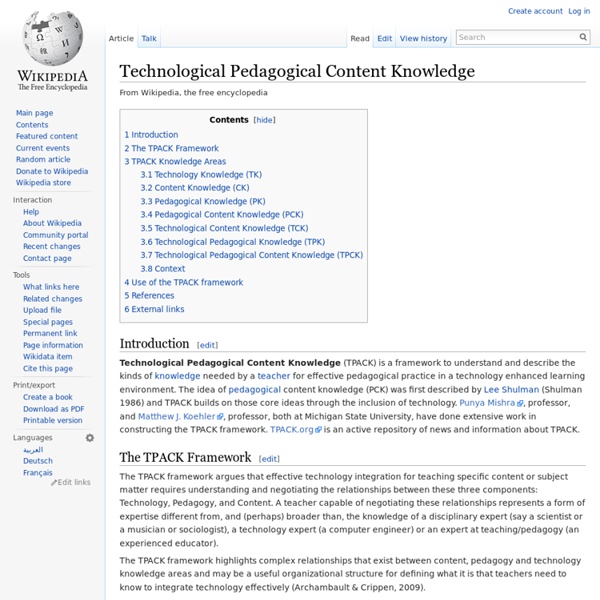Technological Pedagogical Content Knowledge

Hide and seek
Mind map
Diagram to visually organize information A mind map is a diagram used to visually organize information into a hierarchy, showing relationships among pieces of the whole.[1] It is often created around a single concept, drawn as an image in the center of a blank page, to which associated representations of ideas such as images, words and parts of words are added. Major ideas are connected directly to the central concept, and other ideas branch out from those major ideas. Mind maps can also be drawn by hand, either as "notes" during a lecture, meeting or planning session, for example, or as higher quality pictures when more time is available. Buzan's specific approach, and the introduction of the term "mind map", started with a 1974 BBC TV series he hosted, called Use Your Head.[6] In this show, and companion book series, Buzan promoted his conception of radial tree, diagramming key words in a colorful, radiant, tree-like structure.[7] Differences from other visualizations [edit]
Related:
Related:



